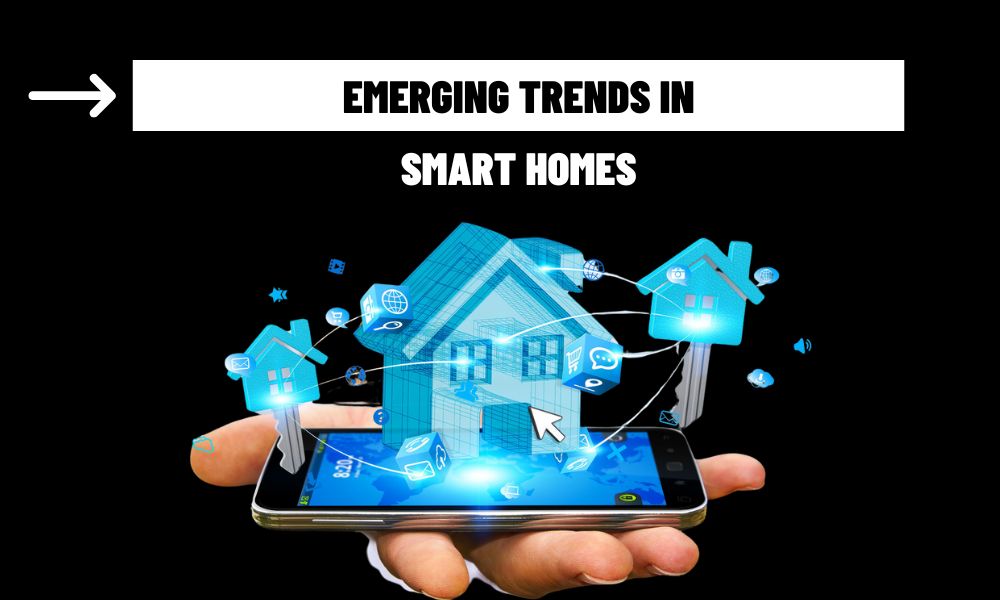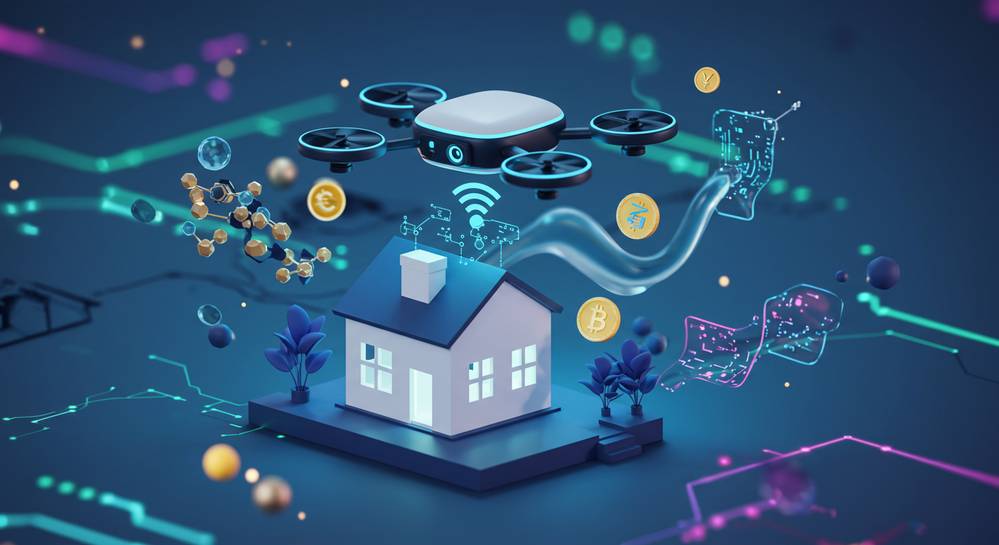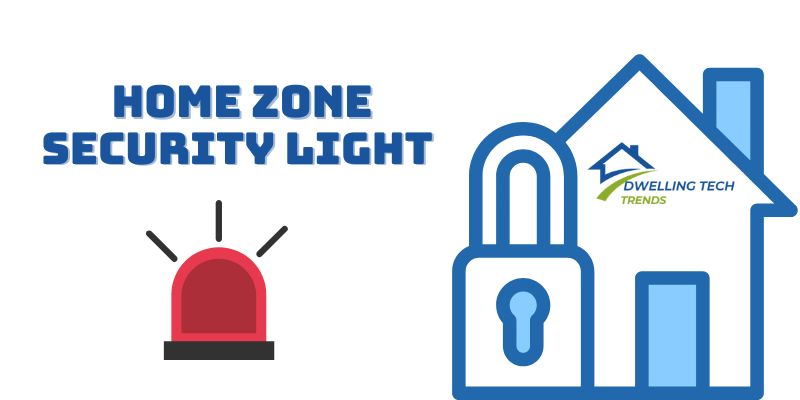It’s a harsh reality: home burglaries are a sadly frequent occurrence. But while the thought of your home being violated can be daunting, it’s empowering to realize that you have a significant role to play in preventing such incidents. This article dives into the realm of home security, exploring various Home Security Examples and strategies that can help you deter burglars and safeguard your peace of mind.
Contents
What is Home Security and Why is it Important?
Home security encompasses a range of measures designed to protect your residence and belongings from unauthorized access and potential threats. It goes beyond simply locking your doors; it’s about creating layers of protection that deter criminals and give you peace of mind.
A robust home security system not only safeguards your physical possessions but also provides a sense of security and well-being. In an increasingly uncertain world, knowing your home is protected can make a significant difference in how you feel about your safety and privacy.
Exploring Different Types of Home Security Systems
The world of home security has evolved remarkably, offering a diverse array of systems and technologies to suit various needs and budgets. Broadly speaking, home security systems can be categorized into two main types:
- Traditional Security Systems: These systems, often referred to as “hardwired” systems, rely on a central control panel that connects to sensors, alarms, and other devices via wired connections. They typically involve a monitoring service that alerts authorities in case of an intrusion.
- Smart Home Security Systems: These systems leverage the power of internet connectivity and advanced technologies like wireless sensors, cameras, and automation features. They offer greater flexibility, remote control, and integration with other smart home devices.
Benefits of a Secure Home: Peace of Mind and More
Investing in home security offers numerous benefits that extend beyond simply deterring crime:
- Enhanced Safety and Security: A well-designed security system reduces the risk of unauthorized entry and acts as a powerful deterrent to potential burglars.
- Peace of Mind: The knowledge that your home is protected provides a significant sense of security and allows you to relax and enjoy your space without constant worry.
- Lower Insurance Premiums: Many insurance companies offer discounts on homeowners and renters insurance for those with security systems, recognizing the reduced risk of claims.
- Increased Property Value: A well-maintained and secure home is generally considered more desirable in the real estate market, potentially boosting its value.
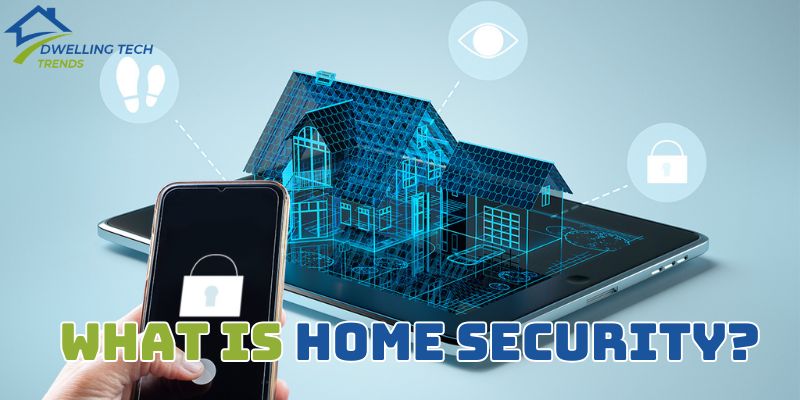
Exploring Common Home Security Examples
Traditional Security Measures: Locks, Alarms, and Lighting
Traditional security measures remain foundational elements of a comprehensive home security strategy. Here are some of the most common examples:
- High-Quality Locks: Deadbolt locks are considered superior to other types and are often required by insurance companies. Ensure you have strong, well-maintained locks on all entry points.
- Motion-Sensing Security Lights: Installing bright motion-activated lights around the perimeter of your home is a simple but effective deterrent. The sudden illumination can startle potential intruders and alert neighbors to suspicious activity.
- Alarm Systems: Traditional ‘hardwired’ alarm systems connect to a central control panel that triggers a loud siren and notifies a monitoring company in the event of an intrusion. These systems are often combined with door and window sensors, glass-break sensors, and motion detectors.
Smart Home Security: Cameras, Sensors, and Automation
Smart home security technology has revolutionized the way we protect our homes, offering greater flexibility, remote control, and enhanced features:
- Security Cameras: Smart cameras have become increasingly affordable and sophisticated. They can be placed both indoors and outdoors, offering real-time monitoring, motion detection alerts, and recording capabilities. Some models offer two-way communication features, enabling you to interact with anyone in front of the camera.
- Smart Door Locks: Smart locks allow you to lock and unlock your doors remotely using a smartphone app, key fob, or other digital methods. They offer convenient access control, eliminating the need for physical keys and allowing you to grant temporary access to visitors or service personnel.
- Motion Sensors: Smart motion sensors can be strategically placed throughout your home to detect movement and trigger alerts on your mobile device. They can also be used to activate smart lights for added security.
- Smart Home Automation: Integrating your security system with other smart devices like smart lights, thermostats, and appliances adds a layer of complexity and efficiency. For instance, you can set routines that automatically turn on lights when motion is detected or disable your alarm system when you arrive home.
Advanced Home Security Options: Environmental Monitoring and Access Control
Beyond the typical home security measures, several advanced options offer a higher level of protection:
- Environmental Monitoring: Systems that monitor for environmental changes like smoke, carbon monoxide, and flooding can provide early warnings and potentially save lives.
- Access Control: Advanced access control systems manage access to your property, allowing you to grant specific permissions for different individuals or groups. This can include features like keyless entry, video intercoms, and remote door unlocking.
Choosing the Right Home Security Solution
Popular Home Security Systems on the Market
With numerous home security systems available, choosing the one that best suits your needs can seem daunting. Here are some popular options:
- ADT: As a longstanding leader in the industry, ADT offers a comprehensive range of traditional and smart home security systems, including monitoring services, professional installation, and a variety of customizable packages.
- Vivint: Vivint specializes in smart home security solutions, offering a range of devices, including cameras, door locks, sensors, and automation features. They also provide professional installation and monitoring services.
- SimpliSafe: SimpliSafe focuses on DIY home security systems, offering a range of wireless security systems, cameras, and sensors. They are known for their affordable pricing and easy setup.
- Ring: Ring is renowned for its smart doorbell cameras, which provide video monitoring, motion detection, and two-way communication. They also offer a range of cameras, alarms, and accessories.
- Nest: Nest, owned by Google, is known for its smart home devices, including doorbells, cameras, thermostats, and security systems. They are recognized for their user-friendly interface and integration with other smart home devices.
DIY Home Security vs. Professional Monitoring: Weighing the Pros and Cons
When choosing a home security system, the decision between DIY and professional monitoring is critical:
DIY Home Security:
Pros:
- Cost-Effective: DIY systems are often more affordable upfront.
- Flexibility: DIY systems allow you to customize your system to meet your specific needs.
- Control: You have complete control over your system and can make changes as needed.
Cons:
- Installation Complexity: Installing a DIY system can be challenging for some individuals.
- Technical Expertise: Maintaining and troubleshooting a DIY system may require technical knowledge.
- Security Concerns: DIY systems may not be as robust or reliable as professionally monitored systems.
Professional Monitoring:
Pros:
- Professional Installation: Professional installation ensures proper setup and optimal performance.
- 24/7 Monitoring: A monitored system gives you peace of mind knowing that a professional team is always watching over your home.
- Rapid Response: In the event of an intrusion, a monitored system triggers an immediate response from the monitoring company, which alerts authorities.
Cons:
- Higher Cost: Professionally monitored systems are generally more expensive than DIY systems.
- Limited Flexibility: You may have less flexibility in customizing a professionally monitored system.
- Contractual Obligations: Professional monitoring often involves a contract with monthly fees.
Finding the Best Fit for Your Needs and Budget
The best home security solution for you depends on your specific needs, budget, and lifestyle:
- Level of Security: How much protection do you require? Do you need basic security measures, or would you like a more comprehensive system with advanced features?
- Budget: How much are you willing to spend on a security system? DIY systems are generally more affordable, while professionally monitored systems come with higher costs.
- Lifestyle: Do you need a system that you can control remotely? Do you have pets that might trigger false alarms?
- Location: Consider the crime rate in your area. A higher crime rate may warrant a more robust security system.
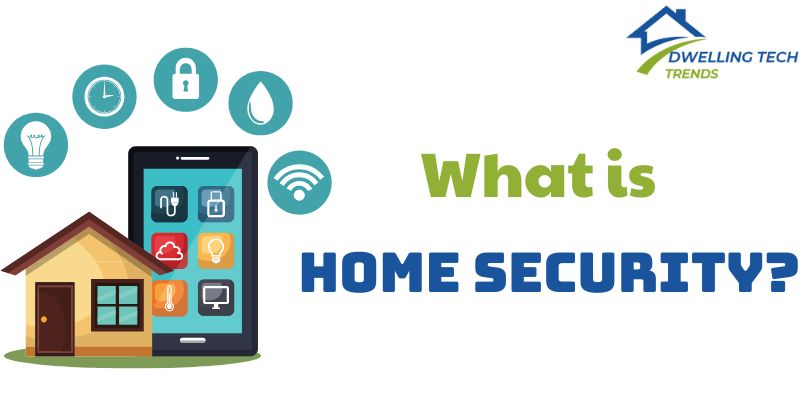
Maximizing Your Home Security
Essential Tips for Enhancing Your Home’s Protection
Beyond choosing and installing a security system, there are many other measures you can take to improve your home’s security and deter potential intruders:
- Keep Your Yard Well-Lit: Good lighting discourages criminals by making your home visible.
- Trim Trees and Shrubs: Dense foliage can obscure views and provide cover for potential intruders. Keep your yard trimmed and well-maintained.
- Secure Your Doors and Windows: Make sure all doors and windows are properly secured with strong locks and deadbolts. Consider installing window alarms or motion sensors to detect any unauthorized entry.
- Be Alert: Be mindful of your surroundings and report any suspicious activity to local authorities.
Integrating Smart Home Devices for a Comprehensive System
Smart home devices can be seamlessly integrated into your security system to create a comprehensive and even more effective layer of protection:
- Smart Lights: Automate lights to turn on and off at specific times or when motion is detected to mimic your presence.
- Smart Thermostats: Use your thermostat to mimic your presence by setting it to adjust temperatures at specific times of day.
- Smart Outlets: Control appliances and electronics remotely, making it look like you are home even when you are away.
Staying Informed About the Latest Home Security Trends
The home security landscape is constantly evolving, with new technologies and innovations emerging regularly. Stay informed about the latest trends and security techniques:
- Advanced AI Surveillance: Security cameras and sensors are becoming more sophisticated through the incorporation of artificial intelligence. This allows them to detect and distinguish actual threats from innocuous movement, reducing false alarms and offering more accurate alerts.
- Biometric Security: Biometrics is gaining popularity in security systems. This involves using unique biological traits to authenticate users, such as fingerprint scanning, retinal scanning, and facial recognition. This creates a more secure and personalized access control system.
- IoT Integration: The Internet of Things (IoT) is playing a significant role in home security. With the increasing connectivity of smart devices, security systems are integrating with other smart home solutions, enabling seamless automation and control.
- Cybersecurity: As home security systems become increasingly reliant on technology, cybersecurity is growing increasingly vital. Ensure your system is using strong passwords and encryption protocols to protect your data and pprivacy.
Home security is about more than just protecting your belongings; it’s about creating a safe and secure living environment for you and your loved ones. Whether you choose a traditional or smart home security system, or a combination of both, empower yourself with knowledge, consider the options available, and take steps to make your home a less appealing target for burglars. By remaining vigilant and implementing the right security measures, you can enjoy peace of mind and protect what matters most.
